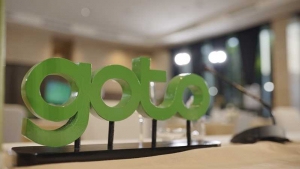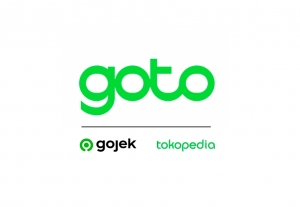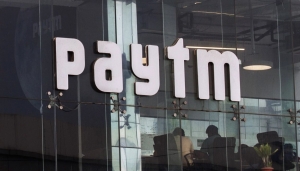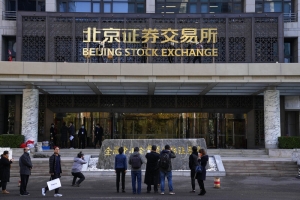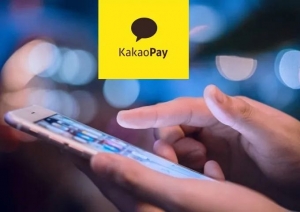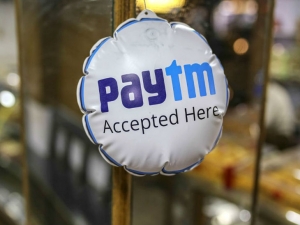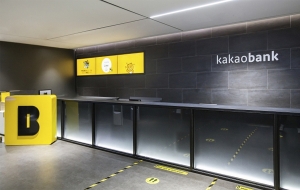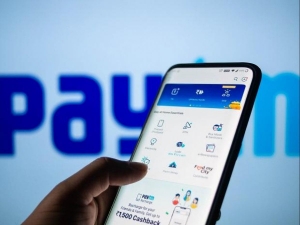Platform companies have not had the best 2022, especially loss-making ones based in Southeast Asia. Amid global economic jitters, investors are souring on inflated tech valuations and stocks. We had thought Indonesia’s GoTo, with its laser focus on its massive home market and strong fundamentals, might be able to buck this trend, and at first it seemed the company might do just that. After all, its IPO was successful. But in recent weeks, the company’s share price has plummeted, mirroring the trajectories of its peers like Sea Group, Grab, Alibaba and Paytm.
Heading into GoTo’s IPO Monday, one could be forgiven for being a bit skeptical. Here was another loss-making platform company with a sky-high valuation and a lot of subsidy-driven digital services. If you’ve seen one, you’ve seen them all, right? Not necessarily, say investors. GoTo raised US$1.1 billion in a triumphant IPO on the Indonesia Stock Exchange. Shares rose up to 23% and closed the day 13% higher at 382 rupiah, valuing the firm at about US$31.5 billion.
Hong Kong’s IPO market has likely hit a nadir, with funds raised from new share listings plummeting 90% year-on-year in the first quarter. Just 11 companies went public on the Hong Kong Stock Exchange in the January-March period, raising a total of US$1.72 billion. It was HKEX’s worst performance since the first quarter of 2013.
There is a growing list of Chinese companies that could be forced to exit U.S. stock exchanges under legislation passed in 2020. The legislation requires all public companies in the U.S. to comply with auditing requirements that Chinese companies have resisted due to Beijing’s own state secrecy laws. On March 30, the Securities and Exchange Commission (SEC) added Baidu to the list. A total of 11 Chinese companies facing delisting have been named so far.
Remember that SPAC boom in the U.S.? To be sure, it has slowed in recent months, but the Nasdaq and NYSE continue to attract some high-profile listings by special purpose acquisition companies, such as Grab’s December debut. It is a different story in Asia. Though Asian exchanges amended regulations last year to wave the way for SPACs, there have not been any blockbusters yet.
Why now? That is the question many analysts and investors are pondering as Indonesian platform company GoTo is pushing ahead with an IPO that seeks to raise up to US$1 billion at a US$30 billion valuation despite the poor performance of loss-making companies' shares in recent months. Like its Singaporean counterpart Grab, GoTo began as an Asian answer to Uber but has morphed into a super app leaning heavily on digital financial services to secure its future. And like Grab, GoTo has yet to turn a profit, spends heavily subsidizing users, and made investors wait a long time for an exit.
When it rains it pours, at least for super apps. Throughout Asia, platform companies are struggling as their capabilities often cannot match overly lofty investor expectations. The problem is especially acute for India’s Paytm, whose record-breaking IPO – it is India’s largest to date – nevertheless turned out to be a sign of worse things to come. Paytm’s stock fell 27% on its first day of trading and has fallen about 65% since the November IPO to 543.5 Indian rupees.
Amid a general digital finance boom in Indonesia, the nascent retail investing segment is growing fast. A proliferation of investment apps, usually with low minimum investments, is allowing a much greater proportion of the population to invest. Historically, the wealthy have dominated the country’s stock market. Indonesia’s newbie investors are not only interested in equities though; they are also increasingly keen on crypto. Many of Indonesia’ new retail investors are young people, with about 70% between the ages of 17 and 30, according to Indonesia’s central securities depository.
Paytm has managed a curious feat, pulling off an underwhelming IPO that is still India’s largest of all time. The buildup to the record-breaking US$2.5 billion deal was tremendous, with expectations set high, to say the least. Yet shares fell 27% on Paytm’s trading debut, erasing US$5 billion in market value and raising questions about the company’s way forward.
Does China need yet another stock exchange? That has been the question of many of our minds since first hearing about the Beijing Stock Exchange, a rejigging of the existing over-the-counter New Third Board. It came about amid a push by Chinese President Xi Jinping to boost onshore capital markets and create an enduring fundraising channel for China’s chronically underfunded small and medium-sized enterprises (SMEs). To that end, the minimum market cap to join the Beijing exchange is just US$31.3 million, significantly less than China’s other exchanges.
The success of Kakao Pay’s IPO comes as a relief in many respects. The Ant Group-backed South Korean firm’s shares more than doubled in their November 3 debut, giving it a higher market value than many incumbents – just as was the case with Kakao Bank’s IPO – and assuaging concerns that an ongoing regulatory crackdown on fintechs could stymie its steady ascent.
Paytm’s IPO is fast becoming larger than life. Analysts are now almost certain the deal will be India’s biggest of all time, raising up to US$2.4 billion (up from an earlier estimate of US$2.2 billion) at a valuation of US$20 billion. The firm reportedly plans to price its shares in the range of 2,080 to 2,150 Indian rupees (US$27.70 to US$28.60), with subscription available from November 8 to 10 and trading to begin around November 18.
Hong Kong’s IPO market had a banner year through September, posting its best performance since 1980 on the back of a flurry of listings by Chinese firms. Up to 71 companies raised nearly US$36 billion on the Hong Kong Stock Exchange (HKEX) from initial stock sales and secondary listings. Seven of the 10 biggest listings were Chinese tech firms. However, most of the funds were raised in the first half of the year. In recent months, the market has slowed sharply amid a highly uncertain and restrictive regulatory environment.
2021 has been a banner year for Indonesia’s tech industry, from the strong performance of key industry players to fundraising in private markets to IPOs. Data compiled by Bloomberg show that companies in Southeast Asia raised a record US$4.9 billion from January to June. 23 companies listed shares on the Indonesia Stock Exchange (IDX) during that period, leading the region. The deal pipeline has remained active in the second half of the year as well.
Online investing has rapidly grown in Indonesia in recent years, with the rise of a digitally savvy generation of middle-class consumers eager to maximize returns on their savings. The ascendancy of startup Ajaib, often compared to the U.S.’s Robinhood, reflects the online investing boom in Southeast Asia’s largest economy.
The race is on to attract SPAC mergers in Asia. Having already rejigged regulations to facilitate SPACs, Singapore has a head start on its competitors. That said, the Hong Kong Stock Exchange (HKEX) will be aiming to attract very different companies than Singapore Exchange (SGX). SGX’s focus will be Southeast Asia tech, while Hong Kong will lean heavily towards mainland China biotech and perhaps tech firms in sectors with strong government support. What remains to be seen is if Hong Kong is willing to adjust regulations to create a more favorable environment for SPAC listings.
Hong Kong’s IPO market appears to have found its niche, acting as an offshore – but not in the same sense as New York – hub for up-and-coming Chinese companies to raise capital. Despite Beijing’s renewed emphasis on nurturing mainland capital markets, in the short run it will be hard for any of the mainland exchanges to compete with Hong Kong.
It has been a banner year for firms going public in Asia, with the IPO market booming from Hong Kong to Seoul to Mumbai. The same cannot be said for SGX, which has been much quieter. Thus far this year, the exchange has seen just three IPOs. As always, limited liquidity and sub-par valuations are problems. Something needs to be done to turn things around.
It is hard to believe that during the first half of 2021 Chinese IPOs in the United States raised a record US$12.4 billion, per Dealogic’s estimates. That was the boom before the bust, which had been brewing for a long time but came to the fore with the disastrous debut of Didi Chuxing on the NYSE. Like Alibaba’s nixed IPO heralded a widespread regulatory crackdown on fintech, Didi’s is doing the same for Chinese IPOs overseas.
India’s tech sector has been booming for years, but it is only now that the growth is coming to fruition in the subcontinent’s capital markets. Many of the country’s most successful platform companies, like Zomato and Flipkart, and fintechs, like Paytm, are choosing to go public in 2021 and they are listing at home rather than on the NYSE or Nasdaq.
Kakao Bank has been South Korea’s top digital lender, both in terms of users and profitability, for several years. Following a blockbuster US$2.2 billion IPO in which its shares surged more than 79%, it is now also the most valuable publicly-listed South Korean financial firm, with a market capitalization of 32 trillion won (US$28 billion), compared to KB Financial Group Inc. (22 trillion won) Shinhan Financial Group Co. (20 trillion won) and Hana Financial Group Inc. (13 trillion won).
Chinese companies raised more than US$12 billion in U.S. markets in the first half of 2021, a half-year record, according to Dealogic. The great U.S.-China financial decoupling had seemingly hit a snag. Then came Didi Chuxing's catastrophic debut on the NYSE, and just like that, the U.S. IPO pipeline for Chinese firms froze. But the companies have to list somewhere offshore and Hong Kong will likely step in to fill the void.
Indonesia’s tech juggernauts are coming into their own this year. First Gojek and Tokopedia merged to create GoTo, which plans to list in both the U.S. and Indonesia. Now Tokopedia’s rival Bukalapak has announced its own plans to go public on the Indonesia Stock Exchange in what looks to be the archipelago nation’s largest ever IPO. Bukalapak recently said that it would increase its IPO size to US$1.5 billion.
2021 will likely be remembered as the year that Asia’s fintech unicorns (ex-China) cashed out. India’s Paytm has become the latest high-flying fintech to cement its plans to go public, filing a draft prospectus with the Securities and Exchange Board of India (SEBI) for a deal expected to raise US$2.2 billion. The deal will be one of India’s largest of all time, including a fresh issue of US$1.1 billion and a secondary issue or offer for sale of the same size.
Two IPOs are better than one, as far as Kakao is concerned. The banking and payments arms of Korea’s super app are both preparing to go public in Korea in August. Kakao Pay, South Korea’s largest payments provider, which has 36 million users and is backed by Ant Group, plans to raise up to 1.6 trillion won ($1.4 billion). Kakao Bank, South Korea’s largest online lender, could raise up to 2.55 trillion won.
Hong Kong may be attracting the lion’s share of offshore listings by Chinese companies, but New York is no slouch. In fact, for all the talk of U.S.-China decoupling, the world’s most liquid capital markets retain significant appeal for Chinese companies. According to Dealogic, 36 Chinese companies had raised US$12.59 billion in U.S. markets as of June 30, a half-year record.
Perhaps there was nowhere for Hong Kong’s IPO market to go but down. From January-March, fundraising hit an all-time high of US$13.9 billion while Hong Kong Exchanges and Clearing (HKEX) posted a record profit of HK$3.8 billion (US$490 million), up 70% year-on-year. At that point, China’s fintech crackdown, which has widened to target tech giants in general, had yet to impact market sentiment.
Paytm is the latest SoftBank-backed unicorn to head for the exit ramp. India’s most valuable startup is planning an IPO in the subcontinent later this year that will value the company at US$25 billion to US$30 billion and raise up to US$3 billion, according to Bloomberg. If the deal is successful, it may be the largest in India’s history.
U.S.-China financial decoupling is an odd thing. Instead of a linear progression in which Chinese firms gradually eschew going public in the US and delist from its stock exchanges, we see some Chinese companies continuing to seek exits on the Nasdaq or NYSE, while others are seeking secondary listings in Hong Kong as a hedge against forced delisting. Still others are actually being forced to delist like the telecoms giant China Mobile, which is now looking at a new listing on the Shanghai Stock Exchange.
China’s fintech crackdown is hurting some of the country’s largest tech firms, but has yet to dampen investor appetite for Chinese tech listings in Hong Kong. In fact, Hong Kong Exchanges and Clearing (HKEX) posted a record profit of HK$3.8 billion (US$490 million) in the January-March period, up 70% year-on-year. Driving the boom were listings by Chinese tech firms of various stripes, including video-streaming platform Kuaishou (which raised US$5 billion) as well as secondary listings by search giant Baidu and video-sharing platform Bilibili. The first quarter is normally the slowest for Hong Kong IPOs as it coincides with the Lunar New Year holiday.
More...
Ride-hailing giant Grab is full of surprises these days. It was not so long ago that the Singaporean decacorn was said to be considering a tie-up with its rival Gojek. Gojek instead is moving to merge with e-commerce giant Tokopedia while Grab is taking the SPAC merger road to an exit. The forthcoming Nasdaq SPAC could value Grab at up to US$40 billion, but it is not the only listing the company is considering. Indeed, Grab is also considering a secondary listing on the Singapore Exchange (SGX).
It has not been the best six months for Ant Group. The erstwhile high-flying fintech giant landed squarely in regulatory crosshairs on the eve of its abortive IPO and has been there ever since. Initial optimism that the company could expeditiously get its regulatory house in order have been dashed as Beijing’s demands increase. Not only must Ant vastly increase its capitalization, which will eat deep into its profit margins, the company must also restructure and hand over its precious user data to a state-run firm. Ant's valuation could fall as low as US$29 billion, a far cry from the US$315 billion price tag that the company had around the time of its abortive IPO. These changes will have a profound impact on Ant’s future prospects and likely other major fintechs in its ecosystem as well.
Buy now, pay later may be the greatest thing for payments since well, credit cards, or even better, depending whom you ask. “What we’re seeing now is a once-in-a-lifetime generational shift away from traditional credit products,” Afterpay CEO and co-founder Anthony Eisen recently told The Australian. While the concept of zero-interest installment payments is not exactly revolutionary, Afterpay is one of the fintechs that has figured out how to package it right. As a result, Afterpay is not only one of the biggest BNPL firms in Australia but also the US. In March, Afterpay surpassed AU$1 billion in monthly sales in the US. With the US increasingly driving Afterpay’s growth, the company is considering an IPO on the Nasdaq.
After years of raising funds in private markets, Southeast Asia’s largest platform companies are suddenly eager to exit. The region’s foremost super app rivals are leading the pack, but the exit routes vary considerably. Grab is making SPAC history with the largest ever such deal, on the Nasdaq. Not to be outdone, Gojek and Tokopedia are moving to finalize their expected merger, which will likely include a listing both in New York and on Indonesia’s own stock exchange. The combined entity, the aptly named “GoTo,” could attain a valuation of US$30-$40 billion.


